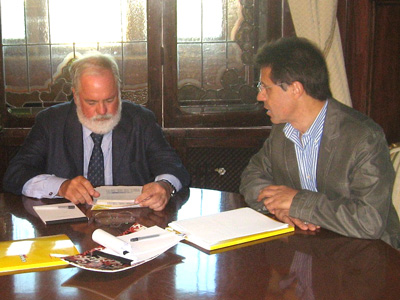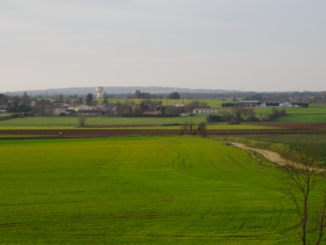 It is only recently that farmers organisations in Spain met with the Agriculture Minister, Arias Cañete and asked him for transparency and openness with regards the implementation of the Common Agriculture Policy. According to COAG, one of the main farmers organisations in Spain, the Ministry of Agriculture and the regional governments have been negotiating the implementation of the Common Agriculture Policy (CAP) behind closed doors: without the involvement of farmers’ organisations.
It is only recently that farmers organisations in Spain met with the Agriculture Minister, Arias Cañete and asked him for transparency and openness with regards the implementation of the Common Agriculture Policy. According to COAG, one of the main farmers organisations in Spain, the Ministry of Agriculture and the regional governments have been negotiating the implementation of the Common Agriculture Policy (CAP) behind closed doors: without the involvement of farmers’ organisations.
The same feeling is shared by the main environmental organisations that are working on CAP actively in Spain, such as SEO/Birdlife and WWF. Many decisions have already been taken by the Spanish government and others are about to be decided in “high level groups” but without the participation of the farmers or the environmental organisations.
The Spanish government together with the regional governments had set up eight working groups of high level that were treating several issues such as the direct payments, limiting the surfaces, the coupled payments, the definition of active farmer, rural development and so on.
It does not seem very fair and democratic, considering that the Common Agriculture Policy is about agriculture, about farming mainly carried out by farmers, about plants and trees, vegetables and fruits, animals, birds and bees and other insects, soil and landscape, and nature and food and us and the planet as whole.
The organisations who are working on this topic have valuable information that should be heard and shared -at the very least.
Measures already decided
COAG demands that “the new CAP should respond to professional and social criteria and not to political interests”
According to the government announcements and comments from my talks with COAG:
- The implementation of the CAP in Spain will have a national character and aim to preserve the status quo without changing the current picture. The direct payments will be estimated on the basis of the amount of the farmers are receiving currently in the regions combined with some other aids to barely arrive in a convergence in 2019.
- It will not use the 30% of the direct payments to top up the first hectares.
- It will not implement the aid under the first Pillar for the disadvantaged areas.
- There will not be transfers of money between the two Pillars.
- The aid to the young farmers will be incorporated in the first Pillar.
- The meaning of “active farmer” nor “active farming” have not yet been defined. Instead, there is already a black list of those who will not receive aid.
- Which sectors will receive coupled aid has not yet been defined.
- The maximum threshold for receiving subsidies will be 300.000 euros. On the other hand the minimum threshold that one can receive aid will be at 300 euros from 2015.
- The small farmers scheme will apply automatically for all the farmers who were receiving less than 1250 euros. This measure aims to simplify the process for the beneficiaries, who will be exempted from controls, applying the greening and convergence. However, the obvious risk that COAG sees with this measure is that the government wants to withdraw the small farmers from the CAP and is calling for the removal of this measure.
Although the organisations are very disappointed and are talking about a missed opportunity of this CAP reform to lead to a more sustainable model, they will continue to fight for it. They will certainly try to work with the regions and put forward their proposals for the rural development and the second Pillar.
Andoni Garcia, executive of COAG committee commented to me: “This CAP is worse than the one before, especially in Spain. The centralised vision of the Spanish government aims at keeping the direct payments as they were without implementing redistribution at all. As far as the greening is concerned, it seems more like ‘green-washing’ and will change nothing in the field. In the face of greater volatility in prices and production costs, accentuated crises, loss of active farmers, and an agriculture directed more towards an industrial agribusiness mode, if this CAP is formed with less market regulation instruments (removing the production quotas , without articulated intervention instruments in markets with a sufficient safety net and so on ) and with regards the issue of aid not taking firm decisions to direct aid towards a more sustainable model, the failure of this reform and of CAP itself is guaranteed.”





